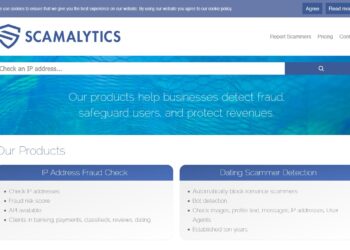In an era defined by digital innovation and interconnectedness, cybersecurity has become a paramount concern for businesses across the globe. As cyber threats continue to evolve, it is crucial for organizations to stay ahead of the curve and adopt proactive strategies to protect their sensitive data, intellectual property, and customer trust. IP software is one step businesses can take. In this article, we will delve into the dynamic landscape of cybersecurity, explore emerging trends, and discuss practical best practices that businesses can implement to fortify their defenses.
Embracing Zero Trust Architecture:
The traditional perimeter-based approach to cybersecurity is no longer sufficient. Zero Trust Architecture, which operates on the principle of “trust no one,” is gaining popularity. This approach verifies every user and device attempting to access the network, regardless of their location. By implementing multi-factor authentication, network segmentation, and strict access controls, businesses can enhance their security posture.
Implementing Endpoint Protection:
As remote work becomes increasingly prevalent, securing endpoints becomes crucial. Endpoint protection solutions provide a layer of defense against malware, ransomware, and other malicious threats. With features like real-time monitoring, threat intelligence, and vulnerability management, businesses can detect and respond to threats more effectively.
Emphasizing Employee Cybersecurity Training:
Human error is often the weakest link in cybersecurity. Phishing attacks, social engineering, and inadvertent data breaches can be mitigated through regular cybersecurity training for employees. By educating staff about the latest threats, safe browsing practices, password hygiene, and incident reporting, businesses can create a culture of security awareness.
Using VPN to Enhance Business’s Cybersecurity Posture:
By encrypting internet traffic, VPNs provide a secure pathway for data transmission, making it extremely difficult for hackers to intercept or decipher sensitive information. This is particularly crucial when employees access company resources remotely or connect to untrusted networks. VPNs also enable businesses to mask their IP addresses, adding an extra layer of anonymity and protecting against potential surveillance or tracking. By implementing VPN solutions, organizations can ensure that their data remains confidential, maintain the integrity of their communications, and mitigate the risks associated with unauthorized access and data breaches. Keep in mind that the VPN should support multiple platforms, has extensions for popular browsers like chrome, Firefox and edge etc. for quick connectivity, and devices to accommodate the diverse technology ecosystem within the business.
Strengthening Cloud Security:
As businesses increasingly adopt cloud services, ensuring the security of cloud environments becomes crucial. Employing robust authentication mechanisms, encryption, regular data backups, and continuous monitoring can protect sensitive information stored in the cloud. Businesses should also collaborate with their cloud service providers to establish clear security responsibilities.
Leveraging Artificial Intelligence and Machine Learning:
Artificial intelligence (AI) and machine learning (ML) technologies are being harnessed to strengthen cybersecurity. These technologies can identify anomalies, detect patterns, and predict potential threats in real-time. AI-powered solutions can automate security incident responses, reducing the time between detection and remediation.
Conducting Regular Vulnerability Assessments and Penetration Testing:
Periodic vulnerability assessments and penetration testing help identify potential weaknesses in the network infrastructure, applications, and systems. By conducting thorough assessments, businesses can proactively address vulnerabilities and patch security loopholes before malicious actors exploit them.
Implementing a Robust Incident Response Plan:
No matter how comprehensive the security measures, breaches can still occur. Having a well-defined incident response plan is crucial to minimizing the impact of a security incident. This plan should include steps for containment, investigation, communication, and recovery. Regular drills and testing ensure the plan remains effective and up-to-date.
Engaging Third-Party Security Experts:
Collaborating with cybersecurity experts and consultants can provide businesses with valuable insights and expertise. Third-party professionals can conduct security audits, perform risk assessments, and offer recommendations tailored to the organization’s specific needs. Their objective perspective can uncover blind spots and enhance overall security.
Closing thoughts:
In an era of escalating cyber threats, businesses must remain proactive and adaptable in their cybersecurity practices. By understanding the evolving threat landscape, implementing a multi-layered defense strategy, embracing emerging technologies like AI, prioritizing employee training, and establishing robust incident response plans, organizations can better protect themselves against potential breaches and minimize the impact of cyber-attacks. By investing in cybersecurity measures, businesses not only safeguard their assets but also reinforce customer trust in an increasingly digitized world.






